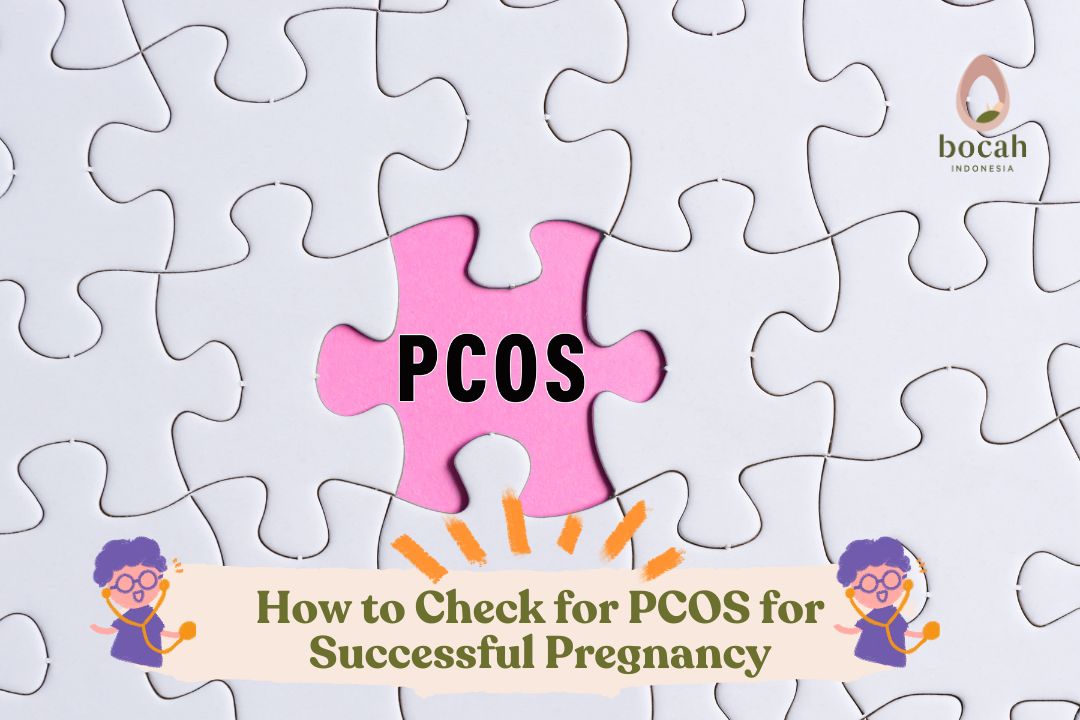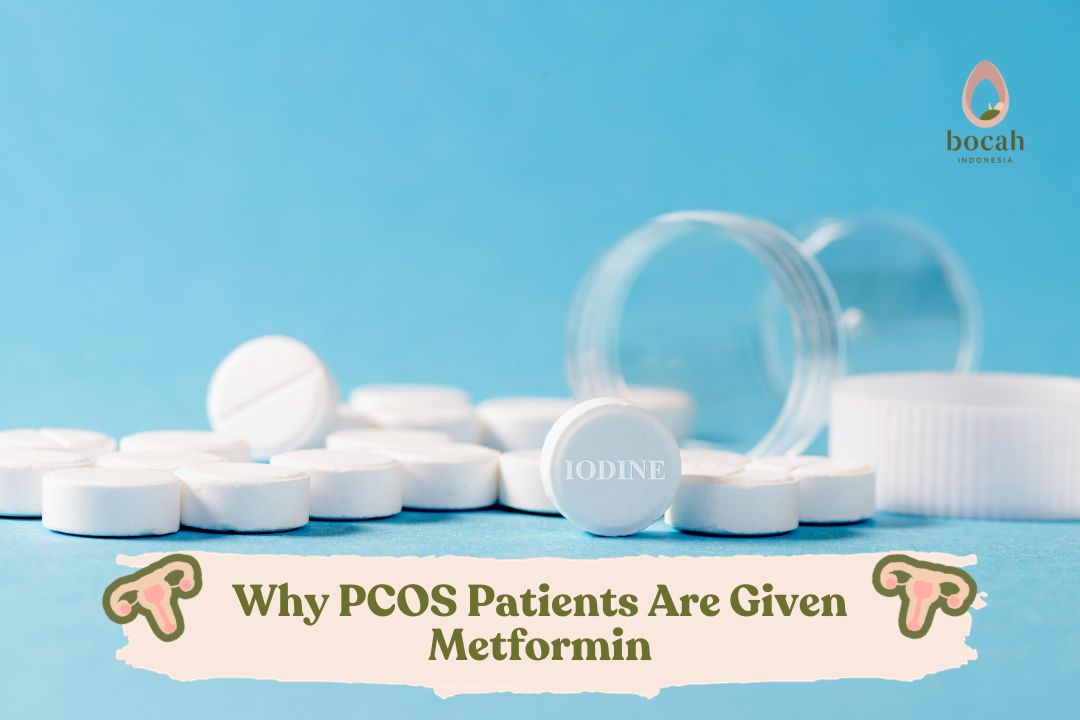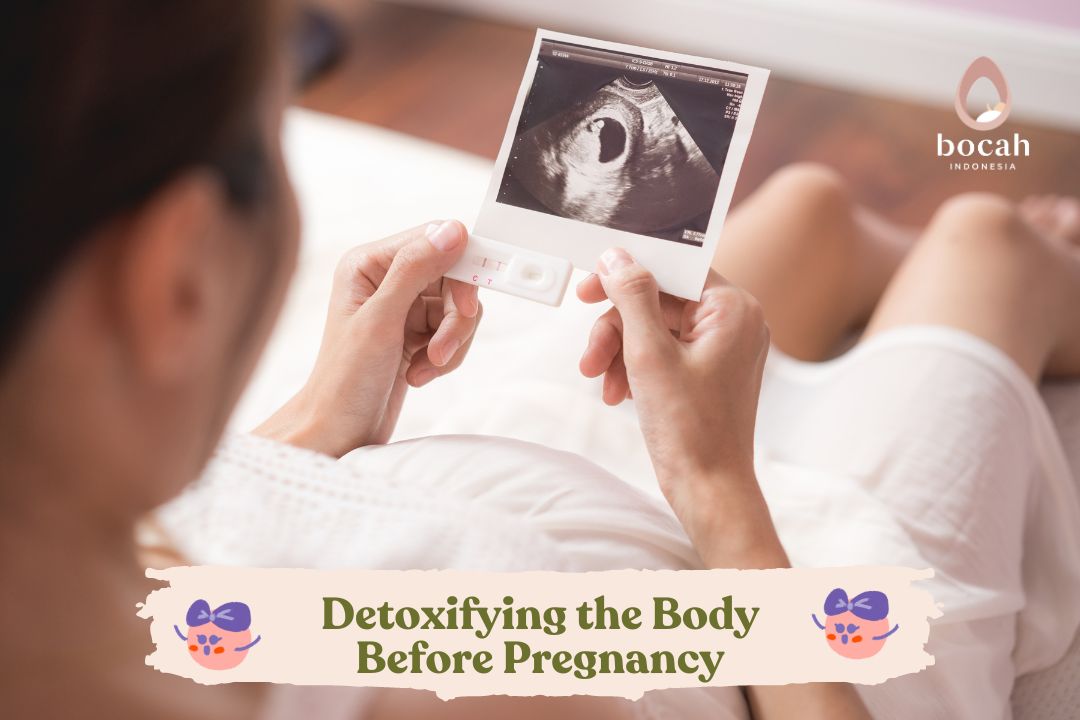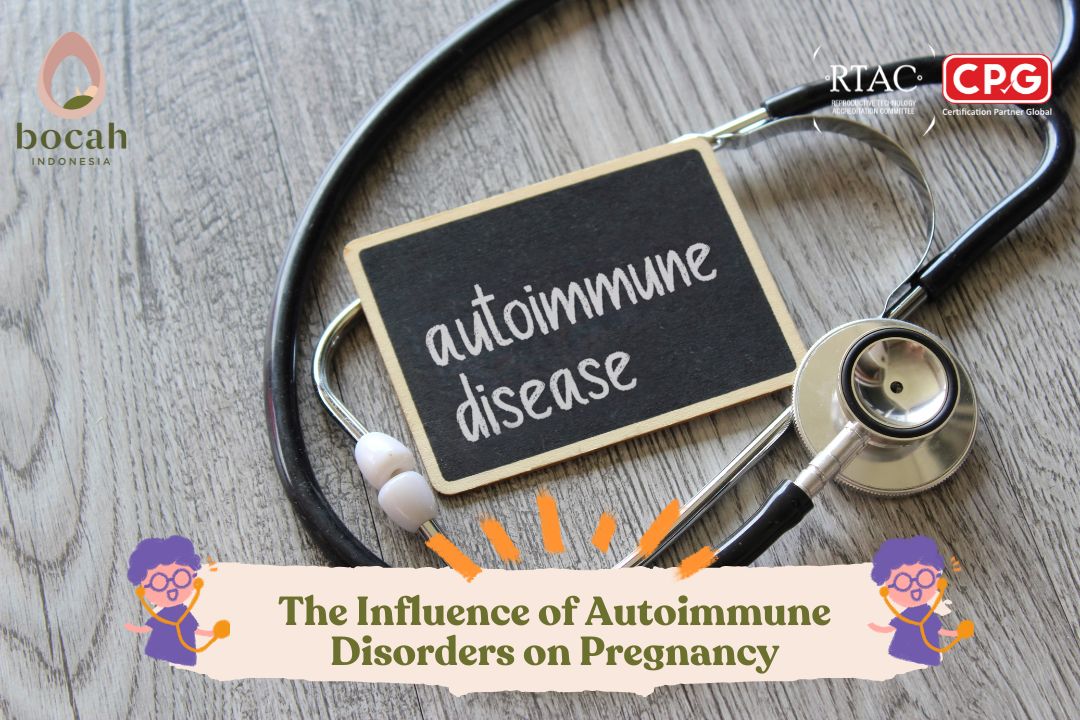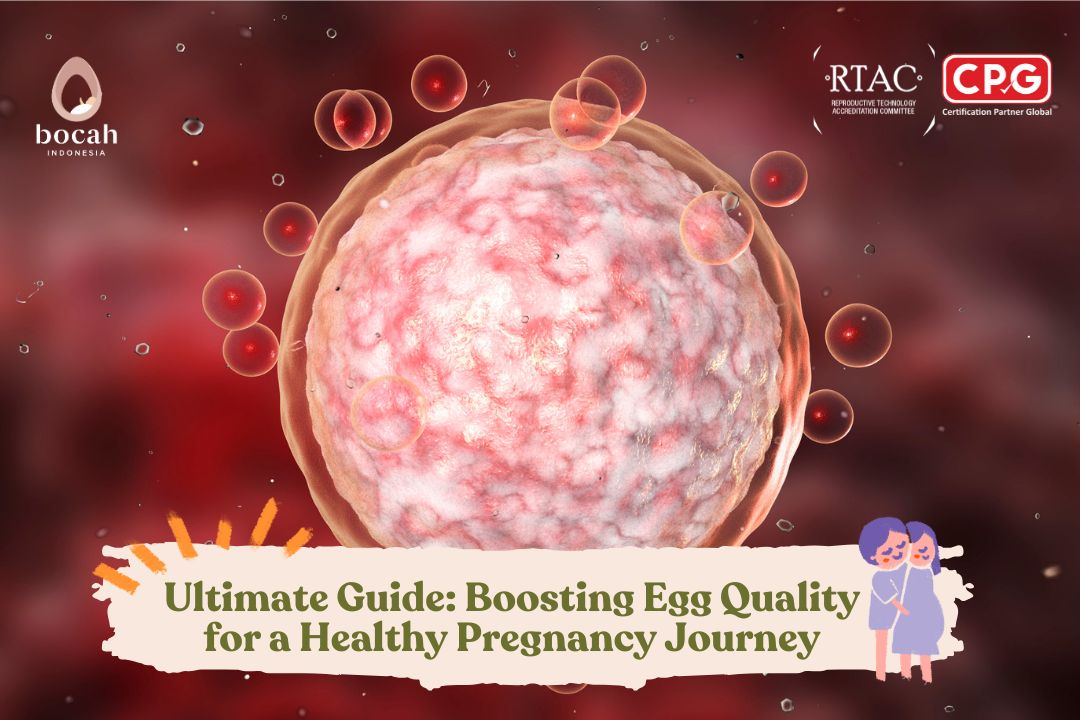Chronic PCOS Pregnancy Misfortune
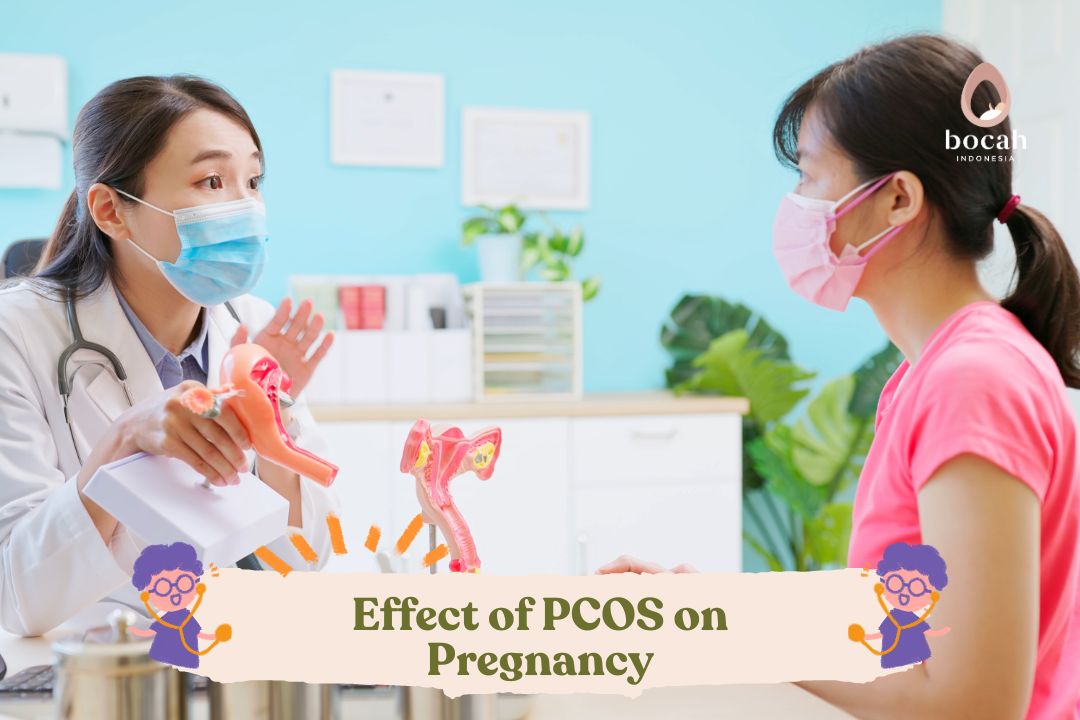
Women with PCOS are often hesitant about pregnancy. Find out the facts on how PCOS affects pregnancy here.
Women with PCOS often have doubts about pregnancy.
If you’re expecting a baby, it’s important for both of you to ensure that your health is optimal, including your reproductive health. One of the conditions that can prevent you from conceiving is polycystic ovarian syndrome (PCOS).
If you have PCOS and manage to conceive, certain treatment measures may be required to ensure that PCOS does not pose a risk to your health and that of the unborn child. This is because the effects of PCOS on pregnancy can vary.
PCOS Women Can Get Pregnant?
PCOS can indeed have a significant impact on the pregnancy process. The hormonal imbalance that occurs in PCOS can cause disturbances in the ovulation process, where mature eggs are not released regularly from the ovaries. This can make it difficult or even hinder Mum’s chances of conceiving.
Tanya Mincah tentang Promil?
While PCOS can be an obstacle in the pregnancy process, many women with this condition can achieve pregnancy with the help of proper medical care and management. Some of the things that mothers with PCOS can do to achieve a pregnancy programme include:
Changing to a healthier diet, making sure that your nutrition is fulfilled every day.
Apply a healthy lifestyle, such as quitting smoking, drinking less alcohol, exercising regularly, making sure to get enough sleep every night.
Having a balanced weight is important for your health and also to support your pregnancy well. Ideally, having a balanced weight can help improve fertility and reduce the risk of complications during pregnancy.
Control your blood sugar levels regularly.
- Control your blood sugar levels regularly.
Taking medication for PCOS, the doctor may suggest taking medication clomid or clomiphene citrate for PCOS sufferers. The right therapy can help increase the chances of pregnancy for women with PCOS. Often doctors also advise women with PCOS who want to get pregnant to try IVF.
So, while PCOS can be a challenge in planning a pregnancy with proper treatment and appropriate medical assistance, pregnancy is still possible for Mums with this condition. The most important part is to consult a doctor or reproductive health professional for appropriate and supportive care in the quest to achieve pregnancy.
Pregnancy is still possible for mothers with this condition.
Impact of PCOS on Pregnancy
Having PCOS can increase the risk of several complications during pregnancy, such as:
1. Risk of miscarriage
One of the effects of PCOS on pregnancy is that mums have a higher risk of miscarriage, especially in the first trimester of pregnancy. The hormonal disruptions associated with PCOS can cause problems in embryo or placenta development, thus increasing the risk of miscarriage.
2. Pre-term birth
Chronic health conditions such as PCOS can also cause you to give birth early or go into preterm labour. When a baby is born prematurely, its organs and systems may not be fully mature and developed. As a result, premature babies are at a higher risk of developing various health problems, including:
- Breathing problems: premature babies’ lungs may not be mature enough, which can lead to difficulty breathing or even serious respiratory failure.
- Breathing problems.
Nutrition issues: premature babies may have difficulty feeding or receiving adequate nutrition, which can interfere with their growth and development.
Body temperature issues: premature babies have a higher risk of having problems regulating their own body temperature, making them susceptible to hypothermia or excess heat.
Infection: as their immune system is not fully developed, premature babies are at a higher risk of infection and infectious complications.
- Infection.
Neurological problems: premature babies are also at risk of neurological problems, such as brain haemorrhages or impaired brain development.
3. Mum at risk of heart problems
These new findings reveal that PCOS can also significantly increase heart problems in pregnant women during childbirth.
Mothers are at risk of heart problems These problems include preeclampsia (dangerously high blood pressure levels with organ damage), peripartum cardiomyopathy (weak or enlarged heart), heart failure, abnormal heart rhythms and venous thromboembolism (blood clots), compared to women without PCOS.
In a separate meta-analysis (an analysis combining multiple studies) published on 16 May in the Journal of Women’s Health, Michos and her colleagues found that women with PCOS were twice as likely to have CAC (Coronary Artery Calcium), a marker of subclinical disease. atherosclerosis (an early indicator of atherosclerosis, the build-up of fat and cholesterol in artery walls).
CAC occurs when plaque builds up in the arteries and becomes calcified. It is a marker of atherosclerosis, even without symptoms, and is a reliable predictor of cardiovascular disease risk.
Then women with PCOS are at increased risk of dyslipidemia (lipid imbalance), type 2 diabetes, hypertension, and heart disease.
4. Low birth weight (LBW)
Hormonal disorders in PCOS can affect the balance of nutrition and foetal growth. As a result, a baby carried by a mum with PCOS may not receive enough nutrients through the placenta to grow and develop properly in the womb. This can lead to the baby being born with a lower weight than expected for its gestational age, known as Low Birth Weight (LBW). LBW can increase the baby’s risk of health complications, such as breathing difficulties, infections and developmental problems.
Low birth weight babies, especially those caused by PCOS, may have lungs that are not fully mature. This can lead to breathing difficulties after birth, and even require specialised care in the neonatal intensive care unit (NICU).”
Studies show that LBW babies have a higher risk of developing long-term health problems, such as impaired growth, developmental disorders, and even chronic diseases such as diabetes and heart disease later in life.
PCOS Treatment during Pregnancy
For pregnant women with PCOS, care during pregnancy may require a more intensive approach to ensure the health of both the mother and the unborn baby. Your doctor may recommend additional measures that may include:
Blood sugar level monitoring
Women with PCOS have a higher risk of developing gestational diabetes, a condition of elevated blood sugar levels during pregnancy. Therefore, close monitoring of blood sugar levels during pregnancy is essential to control this condition and prevent complications that may arise.
Blood pressure monitoring
PCOS may also increase the risk of hypertension or high blood pressure during pregnancy. Therefore, regular blood pressure monitoring by a doctor is necessary to detect abnormal blood pressure changes and take appropriate action.
Dietary adjustment
A healthy and balanced diet is essential during pregnancy, especially for women with PCOS. Your doctor may recommend that you maintain a stable weight, regulate your blood sugar levels, and ensure adequate nutritional intake for both mother and unborn baby.
Lifestyle changes
In addition to diet, lifestyle changes such as increasing physical activity, reducing stress, and managing weight may help control PCOS symptoms and improve health during pregnancy.
This intensive medical care during pregnancy aims to minimise the risk of complications that may arise due to PCOS and ensure that you and your baby can have a healthy and safe pregnancy.
That’s why it’s important for mums with PCOS to keep communicating with their doctor and follow the instructions and medical advice given.
This article has been medically reviewed by Dr. Chitra Fatimah.
Source:
- Sharma, R., Biedenharn, K., Fedor, J., & Agarwal, A. (2013). Lifestyle factors and reproductive health: taking control of your fertility. Reproductive Biology And Endocrinology, 11(1), 66. doi: 10.1186/1477-7827-11-66 https://www.ncbi.nlm.nih.gov/pmc/articles/PMC3717046/
- Johns Hopkins Medicine. (2022). Pregnant Women with Polycystic Ovary Syndrome at Risk of Heart Complications During Delivery, Study Finds https://www.hopkinsmedicine.org/news/newsroom/news-releases/2022/06/pregnant-women-with-polycystic-ovary-syndrome-at-risk-of-heart-complications-during-delivery-study-finds
- Womenshealth.gov. (2016). Polycystic ovary syndrome https://www.womenshealth.gov/a-z-topics/polycystic-ovary-syndrome
- Pregnancybirthbaby. (2020). PCOS and pregnancy https://www.pregnancybirthbaby.org.au/pcos-and-pregnancy
- NWHN. (2019). Can I get pregnant if I have PCOS? https://www.nwhn.org/can-i-get-pregnant-if-i-have-pcos/
- 4 Herbal Medicine to Improve Male Fertility - 01/07/2025
- 7 Signs of PCOS Every Woman Should Know - 30/06/2025
- Ultimate Guide: Boosting Egg Quality for a Healthy Pregnancy Journey - 23/06/2025


